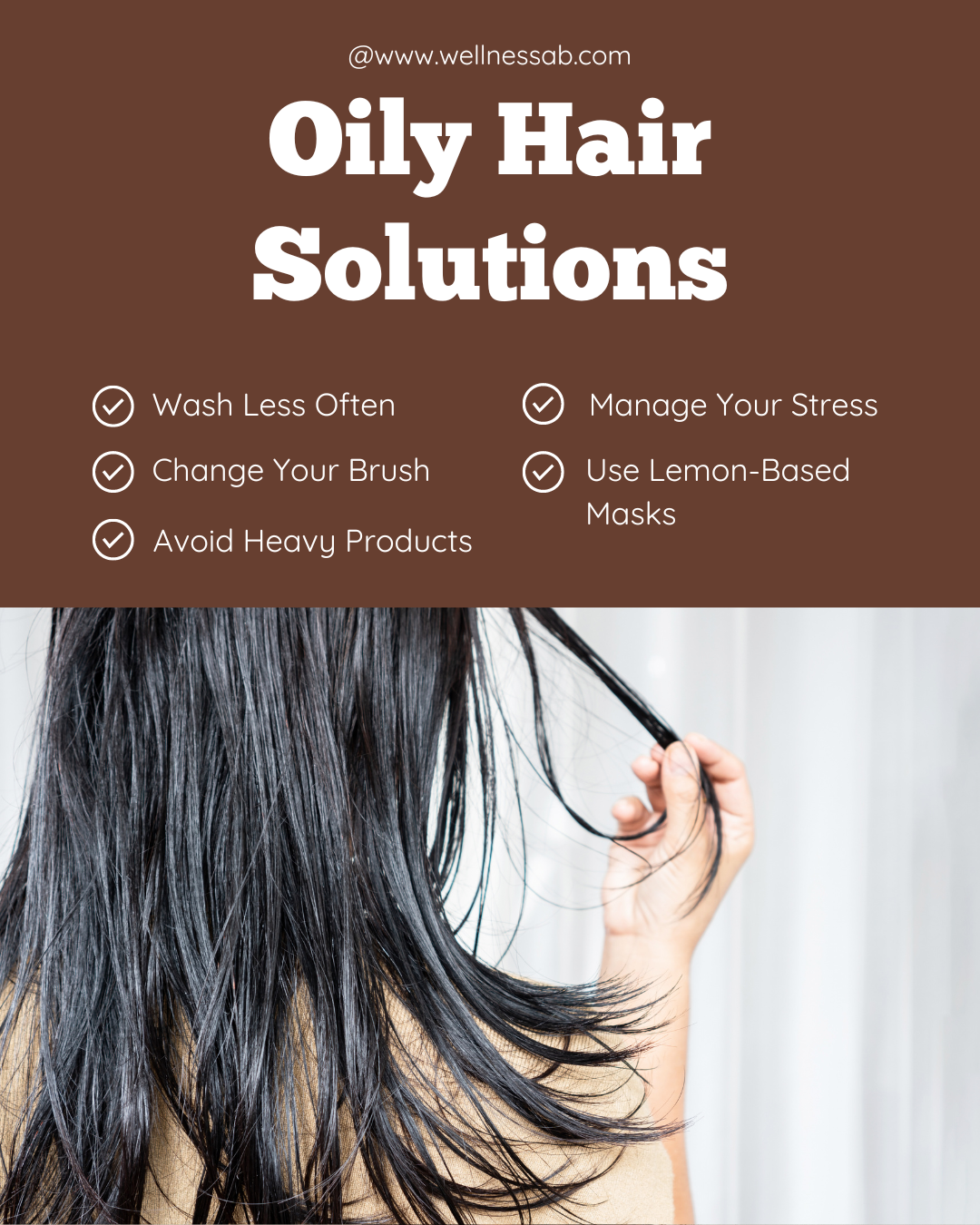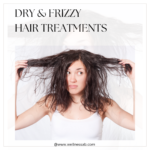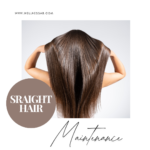
Table of Contents
Introduction
Oily hair can be a persistent challenge, leading to a greasy appearance and a lack of volume. Managing oily hair effectively is crucial for maintaining a healthy scalp and achieving the desired look. This guide explores the causes of oily hair and offers oily hair solutions and practical tips to help you keep your locks looking fresh and clean.
1. Understanding Oily Hair
Oily hair is primarily caused by an overproduction of sebum, the natural oil produced by sebaceous glands on the scalp. While sebum is essential for keeping hair moisturized and protected, an excess can lead to a greasy appearance. Factors such as genetics, hormones, and lifestyle choices play significant roles in the level of oil production. Understanding these causes is the first step in managing oily hair effectively.
2. Identifying the Signs of Oily Hair
Oily hair often presents as limp, shiny, and greasy, especially at the roots. It may also feel sticky to the touch. Typically, those with oily hair may notice their scalp becoming oily just a day after washing. Recognizing these signs early can help in taking the necessary steps to manage oil production.
3. Daily Hair Care Routine for Oily Hair
Establishing a consistent hair care routine is crucial for managing oily hair. Start by choosing a shampoo specifically formulated for oily hair, which can help control excess oil without stripping the scalp of necessary moisture. Wash your hair regularly, but not excessively, to maintain a balance. When conditioning, apply only to the ends to avoid adding extra oil to the scalp. Incorporate dry shampoo into your routine to absorb excess oil between washes.
4. Best Products for Oily Hair
Choosing the right products is essential for managing oily hair. Look for shampoos and conditioners labeled as “oil control” or “clarifying.” Avoid heavy styling products that can weigh down your hair and make it appear greasier. Dry shampoos can be a lifesaver for absorbing oil on non-wash days. Additionally, consider natural or DIY hair care products that contain ingredients like tea tree oil or clay, known for their oil-absorbing properties.
5. Diet and Lifestyle Adjustments
Your diet and lifestyle can significantly impact the oiliness of your hair. Incorporate foods rich in omega-3 fatty acids, such as fish and flaxseeds, which can help balance oil production. Staying hydrated is also crucial for maintaining overall scalp health. Regular exercise can improve circulation, which can benefit scalp health, but it’s essential to wash your hair after sweating to prevent oil build-up. Managing stress and getting adequate sleep are also important, as they can influence hormone levels and sebum production.
6. Hair Styling Tips for Oily Hair
Styling oily hair can be tricky, but certain techniques can help. Opt for hairstyles that keep hair away from the face and scalp, such as updos or braids, to reduce oil transfer. Avoid heavy styling products, and instead, use lightweight options like mousse or spray. Hair accessories like headbands or clips can also help manage oily hair by keeping it in place and reducing scalp contact.
7. Home Remedies for Oily Hair
Several home remedies can help manage oily hair. An apple cider vinegar rinse can balance the scalp’s pH and reduce oiliness. Baking soda can absorb excess oil, while aloe vera provides moisture without making the hair greasy. A lemon juice and water rinse can help cleanse the scalp, and green tea can reduce sebum production due to its antioxidant properties.
8. Long-Term Solutions for Oily Hair
For long-term management, consider incorporating scalp treatments and exfoliation into your routine to remove excess oil and dead skin cells. Regular trims can help remove split ends and reduce oil build-up. Avoiding heat styling and using silk pillowcases can also minimize oil production. If over-the-counter products aren’t effective, professional treatments from a dermatologist or trichologist may be necessary.
Click to know about the Ultimate Guide To Maintaining Straight Hair.
9. FAQs about Oily Hair
9.1 Can oily hair be genetic?
Yes, oily hair can be hereditary. If your parents have oily hair, you’re more likely to have it as well.
9.2 How often should I wash my hair if it’s oily?
It’s generally recommended to wash oily hair every 2-3 days, but this can vary depending on individual hair and scalp needs.
9.3 Are there any natural remedies for oily hair?
Yes, natural remedies like apple cider vinegar, baking soda, and aloe vera can help manage oiliness.
9.4 Can diet affect hair oiliness?
Yes, a diet high in fatty, oily foods can increase sebum production. Eating a balanced diet with plenty of fruits, vegetables, and omega-3 fatty acids can help.
9.5 How can I prevent my hair from looking greasy by the end of the day?
Using dry shampoo, avoiding touching your hair, and choosing the right hairstyles can help keep your hair looking fresh throughout the day.
11. Expert Insights on Oily Hair Management
Experts agree that managing oily hair involves a combination of good hair care practices and lifestyle adjustments. Dermatologists recommend using gentle, oil-control shampoos and avoiding over-washing. Trichologists suggest regular scalp exfoliation to prevent oil build-up. Hair stylists emphasize the importance of using lightweight styling products and experimenting with hairstyles that reduce scalp contact. There are also common myths about oily hair, such as the idea that it needs to be washed every day, which experts debunk.
12. Conclusion
In conclusion, managing oily hair requires a consistent routine and the right products. By understanding the causes of oily hair and adopting suitable hair care practices, you can keep your hair looking fresh and healthy. Don’t forget to experiment with different solutions to find what works best for your hair type. For further learning, consider consulting a dermatologist or hair care professional.











